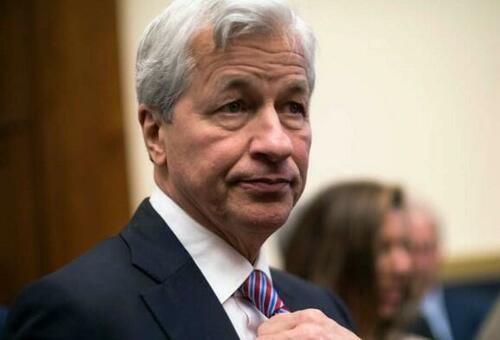
While Elizabeth Warren continues to espouse the anti-crypto movement, citing corruption and money laundering, her pal in loathing bitcoin, Jamie Dimon at JP Morgan, has started off a new week with yet another settlement with the government for regulatory infractions.
Without admitting or denying charges by the U.S. Securities and Exchange Commission, the bank paid an $18 million fine this week for violating whistleblower protection rules with its confidentiality agreements over the course of a 3 year period, according to Morningstar and MarketWatch.
An SEC press release stated: "According to the SEC’s order, from March 2020 through July 2023, JPMS regularly asked retail clients to sign confidential release agreements if they had been issued a credit or settlement from the firm of more than $1,000."
It continued:
"The agreements required the clients to keep confidential the settlement, all underlying facts relating to the settlement, and all information relating to the account at issue. In addition, even though the agreements permitted clients to respond to SEC inquiries, they did not permit clients to voluntarily contact the SEC."
The mob had a name for that, didn't they..."hush money"?
Gurbir S. Grewal, Director of the SEC’s Division of Enforcement commented: “Whether it’s in your employment contracts, settlement agreements or elsewhere, you simply cannot include provisions that prevent individuals from contacting the SEC with evidence of wrongdoing.”
Grewal continued: “But that’s exactly what we allege J.P. Morgan did here. For several years, it forced certain clients into the untenable position of choosing between receiving settlements or credits from the firm and reporting potential securities law violations to the SEC. This either-or proposition not only undermined critical investor protections and placed investors at risk, but was also illegal.”
Corey Schuster, Co-Chief of the Enforcement Division’s Asset Management Unit added: “Investors, whether retail or otherwise, must be free to report complaints to the SEC without any interference."
The news comes days after the bank closed out the most profitable year in US banking history with its seventh consecutive quarter of record net interest income and a surprise forecast that the good times may continue in 2024.
Bloomberg's Max Abelson said at the time that the too big to fail bank had gotten even bigger: "...this bank’s standardized risk-weighted assets hit $1.7 trillion, its cash and marketable securities are $1.4 trillion, and average loans are near there at $1.3 trillion. The biggest gets bigger."
While Elizabeth Warren continues to espouse the anti-crypto movement, citing corruption and money laundering, her pal in loathing bitcoin, Jamie Dimon at JP Morgan, has started off a new week with yet another settlement with the government for regulatory infractions.
Without admitting or denying charges by the U.S. Securities and Exchange Commission, the bank paid an $18 million fine this week for violating whistleblower protection rules with its confidentiality agreements over the course of a 3 year period, according to Morningstar and MarketWatch.
An SEC press release stated: “According to the SEC’s order, from March 2020 through July 2023, JPMS regularly asked retail clients to sign confidential release agreements if they had been issued a credit or settlement from the firm of more than $1,000.”
It continued:
“The agreements required the clients to keep confidential the settlement, all underlying facts relating to the settlement, and all information relating to the account at issue. In addition, even though the agreements permitted clients to respond to SEC inquiries, they did not permit clients to voluntarily contact the SEC.”
The mob had a name for that, didn’t they…”hush money”?
Gurbir S. Grewal, Director of the SEC’s Division of Enforcement commented: “Whether it’s in your employment contracts, settlement agreements or elsewhere, you simply cannot include provisions that prevent individuals from contacting the SEC with evidence of wrongdoing.”
Grewal continued: “But that’s exactly what we allege J.P. Morgan did here. For several years, it forced certain clients into the untenable position of choosing between receiving settlements or credits from the firm and reporting potential securities law violations to the SEC. This either-or proposition not only undermined critical investor protections and placed investors at risk, but was also illegal.”
Corey Schuster, Co-Chief of the Enforcement Division’s Asset Management Unit added: “Investors, whether retail or otherwise, must be free to report complaints to the SEC without any interference.”
The news comes days after the bank closed out the most profitable year in US banking history with its seventh consecutive quarter of record net interest income and a surprise forecast that the good times may continue in 2024.
Bloomberg’s Max Abelson said at the time that the too big to fail bank had gotten even bigger: “…this bank’s standardized risk-weighted assets hit $1.7 trillion, its cash and marketable securities are $1.4 trillion, and average loans are near there at $1.3 trillion. The biggest gets bigger.“
Loading…





